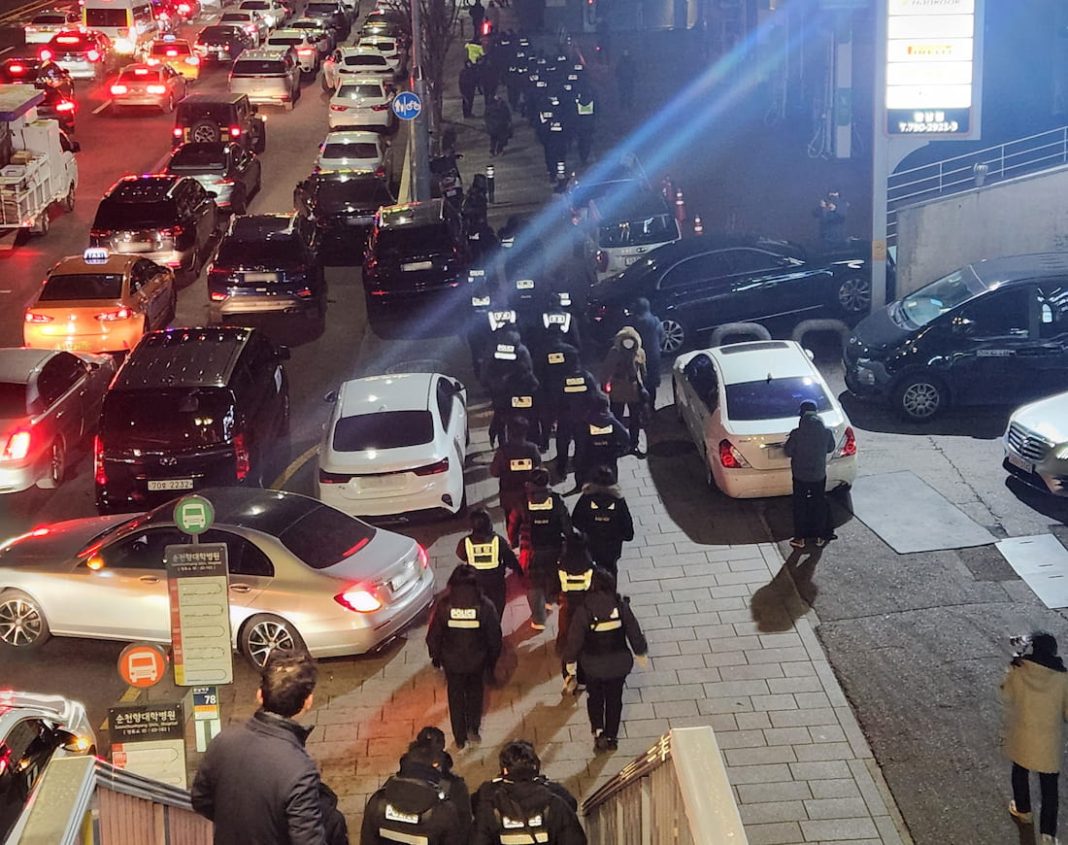South Korean authorities have arrested impeached President Yoon Suk-yeol over insurrection accusations related to his failed martial law declaration.
Yoon’s presidential motorcade on Wednesday left the hillside residence where he has been holed up for weeks behind barbed wire barriers and a small army of personal security, and later arrived at the offices of the anti-corruption agency heading the probe.
In a statement, Yoon said he submitted himself for questioning to avoid any violence after more than 3000 police officers marched on his residence to arrest him from the early hours on Wednesday.
“When I saw them break into the security area using firefighting equipment today, I decided to respond to the CIO’s investigation – despite it being an illegal investigation – to prevent unsavoury bloodshed,” Yoon said in a statement.
Yoon’s lawyers have argued attempts to detain Yoon are illegal and are designed to publicly humiliate him. The warrant investigators secured for his arrest is the first ever issued against an incumbent South Korean president.
As local news broadcasters reported that Yoon’s detention may come soon, some minor scuffles broke out between tearful pro-Yoon protesters and police near the residence, according to a Reuters witness at the scene.
Yoon’s declaration of martial law stunned South Koreans and plunged one of Asia’s most vibrant democracies into an unprecedented period of political turmoil. Lawmakers voted to impeach him and remove him from duties on December 14.
Separately, the Constitutional Court is deliberating over to uphold that impeachment and permanently remove him from office.
The arrest gripped the nation with hundreds of thousands glued to South Korean broadcasters’ live feeds on YouTube since before dawn.
Officers from the anti-corruption unit leading the investigation arrived near the residence at 4am.
By then there already were hundreds of pro-Yoon protesters, some wrapped in foil blankets and others waving flags bearing “Stop the Steal” slogans referring to Yoon’s unsubstantiated claims of election fraud – one of the reasons he gave to justify his short-lived martial law declaration.
“If the president is arrested, I will be heartbroken,” said Jang Kyoung-sun, 64, a Yoon supporter who had travelled from eastern Gangwon province to Seoul to protest his arrest.
“He declared martial law truly for the nation and the people.”
The opposition Democratic Party, which holds a majority in parliament after a landslide legislative election victory in 2024, earlier issued a statement calling on Yoon to comply with the arrest.
“There is no place to run anymore,” the party said.
Cho Sun-ah, 51, was among another contingent of people rallying near his residence in support of authorities’ attempts to arrest Yoon.
“I don’t think it is right for the leader of an insurrection to stick it out like that despite the issuance of an arrest warrant without facing any punishment. The law should be equal for everyone and this isn’t right even if it’s the president,” he said.
Yoon’s lawyers said the arrest warrant was illegal because it was issued by a court in the wrong jurisdiction and the team set up to investigate him had no legal mandate to do so.



